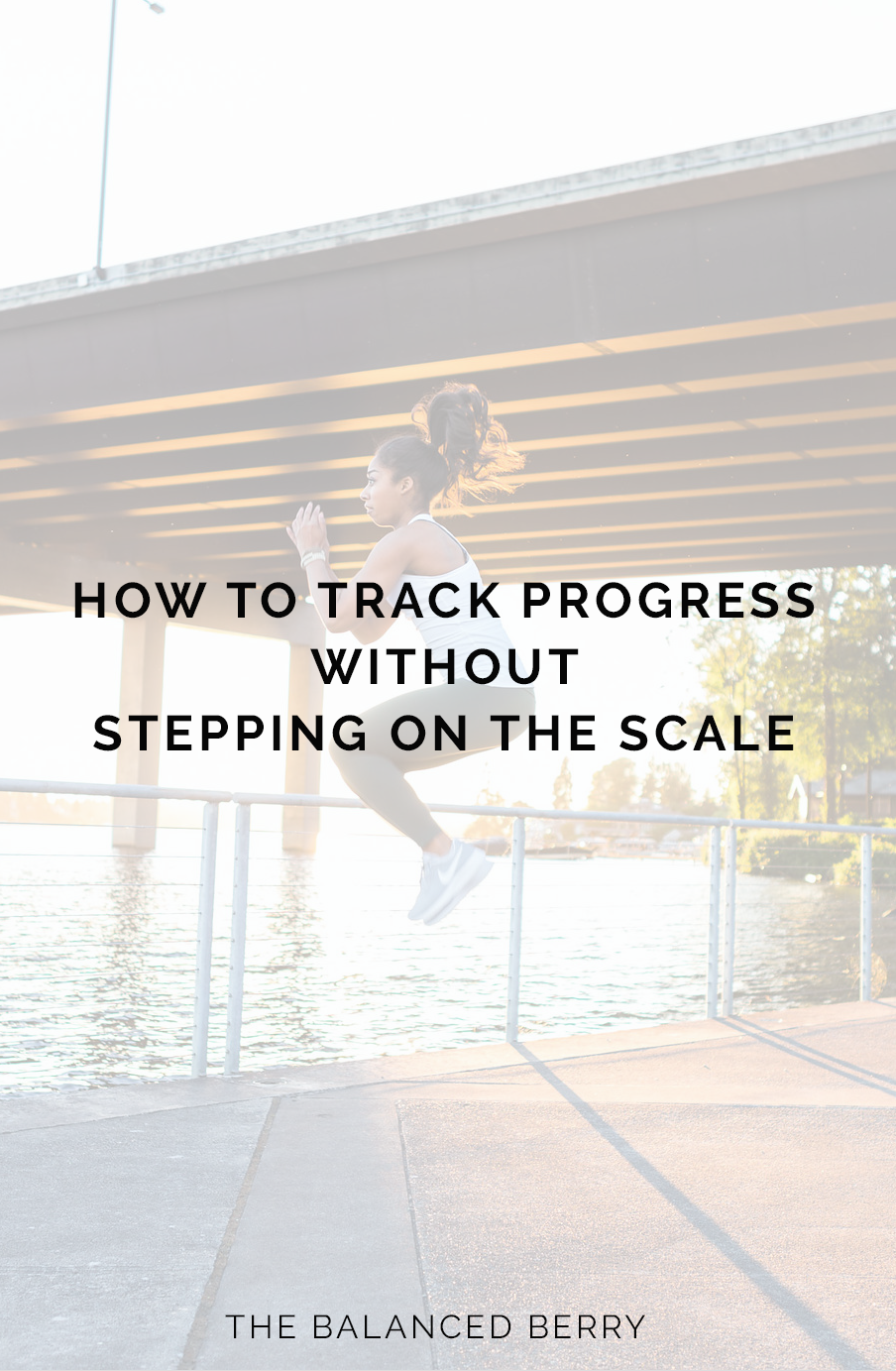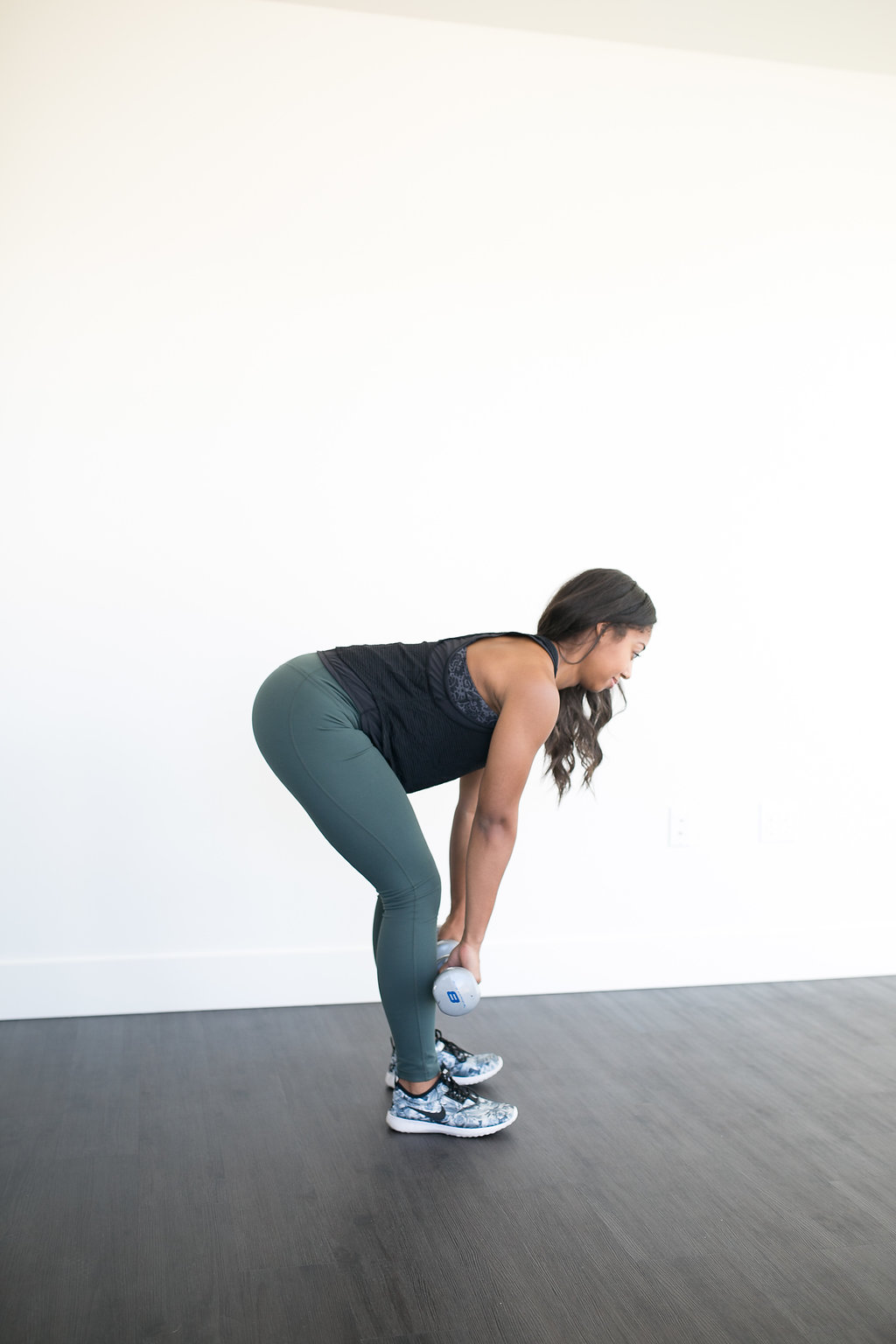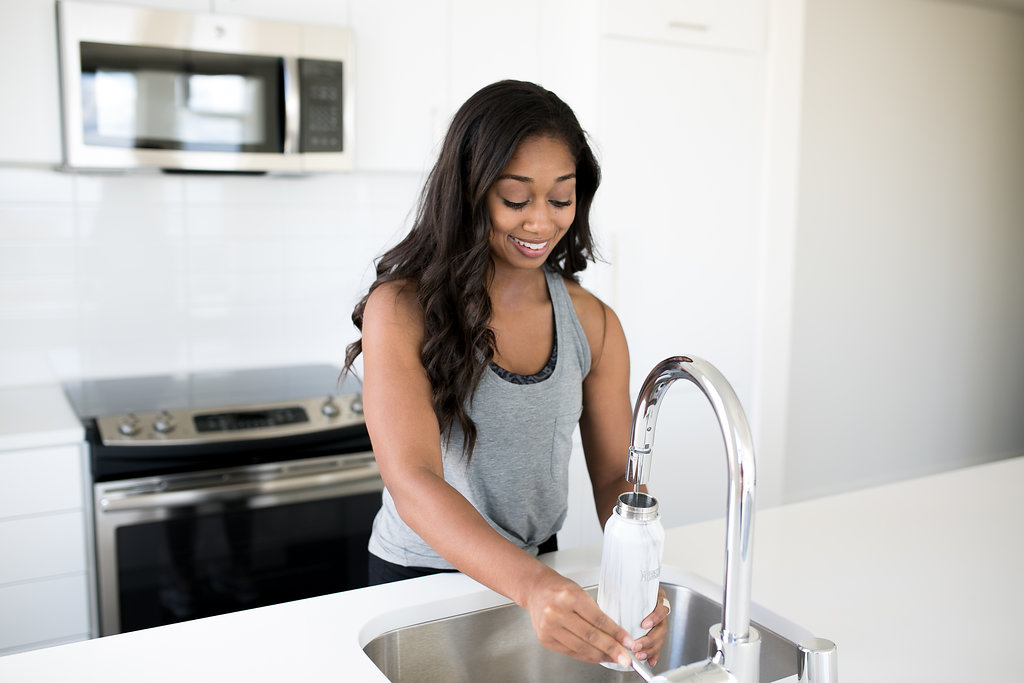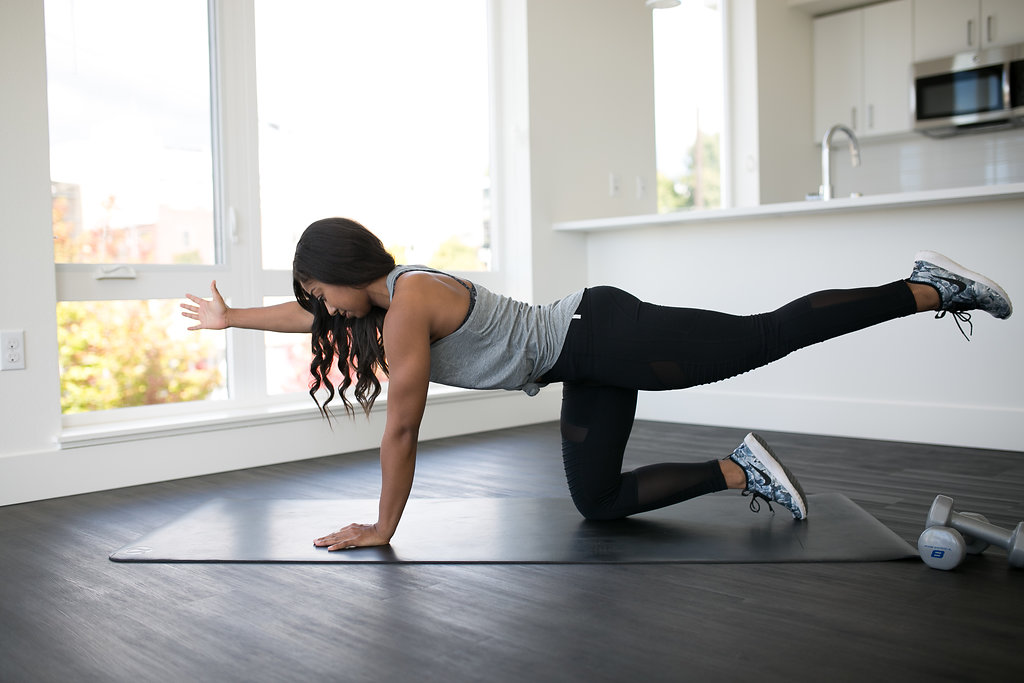
The number on the scale isn’t everything! Here are 7 ways to track your fitness progress that don’t involve the scale.

The scale is kind of the worst. I take that back. It’s not the scale’s fault. Our attitudes, beliefs, and the power we give the scale to determine how we feel about ourselves are what’s the worst.
At the end of the day, the scale is just an object. It is a tool that can measure one factor about us. What it can’t measure is heart, character, or compassion. And it most definitely shouldn’t be used to gauge how “good” we are being, or how we feel about ourselves as a whole. Easier said than done, I know.
I too have had my own battles with stepping on the scale. I can remember a time where stepping onto the scale was cemented into my morning routine, and that number along with how many calories my heart rate monitor said I burned during my workout, would solidify my mood for the day. Just thinking of that time, and thinking of all the women who still feel this way break my heart.
There is no question that wellness is a journey, and that to understand our progress in that journey there needs to be some form of measurement. However, I’m a firm believer that there are more empowering, beneficial ways to measure our progress on that journey than stepping on the scale.
Here are 7 empowering, beneficial ways to track your health and fitness progress without stepping on the scale.
Strength and Conditioning Performance

By far my favorite way to track progress – performance. Setting, training for, and achieving a performance goal is an incredibly rewarding feeling. Are you finally busting out push-ups on your toes? Were you able to get your chin over the pull-up bar without assistance? Did you make it an entire mile without stopping? Can you do a solid 60-second plank with good form? Celebrate those wins! Those moments are the most telling sign that your body is becoming stronger and healthier.
Assess Your Energy Level
Across the board, when most people start incorporating whole foods and regular movement into their lifestyles, the most common side effect is more energy. Making it through the day without the dread 2 pm slump is a huge win.
Ability to Perform Everyday Activity with Ease
Everyday tasks can sometimes feel like those fitness tests from your middle school P.E. class. The ability to go up and down flights of stairs without getting winded, lifting a heavy box safely, and even carrying bags of groceries from the car can be beneficial mini-assessments. All of these activities require at least a base level of functional fitness, and your ability to perform them with safety and ease can tell you a lot about your physical fitness level.
Healthy Habits

Photo by S. Wolfe Photography
Repeat after me: habits are EVERYTHING and are what truly create positive change and lasting motivation. Tracking adherence to a healthy habit i.e. drinking half your body weight in ounces per day, having a vegetable with every meal, or getting in 10 minutes of movement, are all great places to start. Taking note of your behavior instead of your weight can be way more beneficial in the long run.
Balance

Photo by S. Wolfe Photography
And by balance, I mean physical balance. Having a strong sense of physical balance is a great way to test how you’re doing physically and can give you a lot of good insight into how strong your core is. Having good balance can help prevent injuries, have fast reaction time, and can stabilize your body for a variety of movements.
To improve your balance, incorporate unilateral exercises into your routine such as touchdowns and single-leg deadlifts.
Posture
Having good posture is a sign of having a strong posterior chain. AKA, it means your back is nice and strong. When you have good posture, you are able to perform other movements and exercises safely and effectively. Having good posture also minimizes the chance of injury, and helps combat back pain.
The way your clothes fit
The fit of your clothes can be way more telling than the scale. If you have put on lean muscle mass, you may see the scale go up. However, because muscle is more dense and compact than fat, even if the scale is up you may notice your clothes fitting a little looser. Paying attention to how your clothes fit can give you good insights into your body composition.
Your Turn:
- How do you typically track fitness progress?

Love this! These ways are more fulfilling than the number going down on the scale. Sharing! ❤️
Exactly! So glad you agree and thank you so much for sharing ❤️